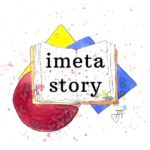Crying, fighting, not eating—no this isn’t me finishing an anime binge. This is Hannah, the woman we met reading the first two paragraphs of the Biblical book of 1 Samuel. I’m reading through the Bible looking for the things that storytellers look for, strong characters, cross references and patterns.
In verses 1-6, we saw “a certain man” who has two wives and they are in an unhealthy cycle of favoritism.
Verse 7 beefs up marital the beef. Penniah, the wife with children is verbally attacking Hannah who doesn’t have any children. It’s gotten so bad that every festival (think Hebrew Thanksgiving) Hannah starts crying and stops eating.

It’s interesting that the first spoken words in this book are Elkanah asking his wife about her mental state: “Don’t I mean more to you than ten sons?”
My first thought is Elkanah is over estimating his own importance. Of course he isn’t enough to make her happy–romantic relationships cannot be a substitute for personal goals/fulfillment. But then I hear the individualistic modern spin in my superiority and try to shake myself out of my culture comfort and put myself in Hannah’s perspective.
In the last blog, I pointed out that Hannah views the Lord as responsible for both children and barrenness. So to be barren is to be abandoned by God, or in in the Biblical parlance, “forgotten.”
Today that is going to change.
Verse 9. “When they were done eating, Hannah stood up…” This used to confuse me–of course she stood up! What was she going to do, roll to the tabernacle? But then I heard a sermon by Timothy Keller where he mentioned “She stood up” is a Hebrew idiom like “put her foot down.” It means make a decision. So when I read odd phrases, I need to look up old old old timey idioms.
She makes a decision (writing books always say that active protagonists are very important). Her choice is to brush past the Priest sitting by the door, kneel and pray.
Verse 11 gives us Hannah’s first words, a passionate vow of exchange. “God give me a son and I will give him back.” Here, she use another idiom, “And no razor will ever be used on his head” is shorthand for the Nazarite vow, those Israelites who dedicated their whole life to God. Nazarite tradition (not to be confused with Nazareth the place) crisscross scripture from the Pentateuch to Judges to John the Baptist. Wait—I suddenly realize that my mental pictures of certain prophets have short hair and a bald spot. If no razor was ever used on their heads, I have to reimagine to include a man bun… She asks three verbs:
- That God LOOKS at her
- That he NOT FORGET her
- That he GIVE her a son.
This is the basic cry of humanity in Scripture. The Psalms and the Prophets, into the New Testament beg God to look, remember, give. We want God to see us, to get us, to grasp how much this sucks and life hurts. We want our pain acknowledged. “Look at me!” Then she prayed that God not forget. This feels to me like the ancient version of “don’t leave me.” Don’t just see my pain once but stick around and do something. Remember me. To be remembered is the core cry, and not just of Bible characters but arguably of every human aware of death.
And Hannah’s solution is also the Bible’s general solution to all problems, is that God will give us a son. “For to us a son is born, to us a child is given…” but I’m getting ahead of myself.
Hannah is so depressed and verbally abused she is not eating. Her husband and her physical well-being isn’t enough. So she makes a decision, takes action. She brushes into the place of God to ask to be seen, remembered and be given a son.
So who will see her? Who will remember her? Will she get a son?
And if she does get a son, will she really give him up?



